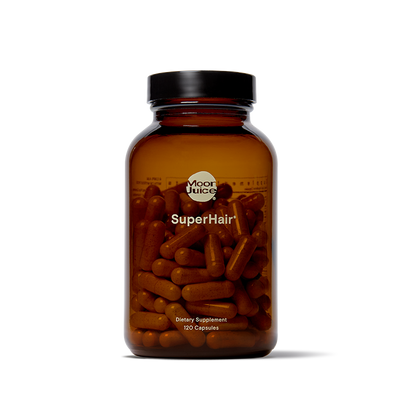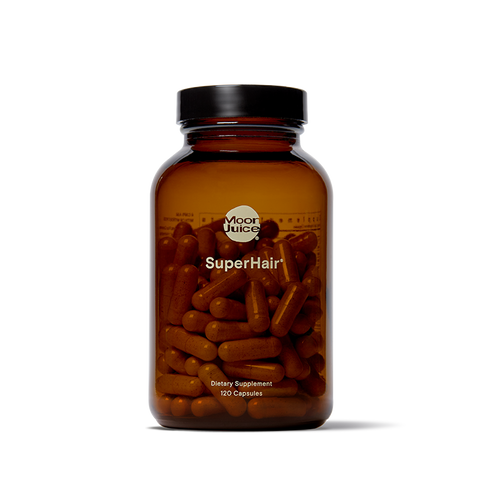When it comes to conception, many women feel more mentally prepared later in life — but because of antiquated belief systems, they may not feel as supported in getting pregnant at an older age.
Amanda spoke to Elizabeth Bachner, midwife, educator, and founder of GraceFull Birth, about prepping your body for safe, effective conception in your late 30s and 40s and how to care for your mental health to foster a safe and healthy pregnancy.
“The biggest challenge is the people who are making up the word geriatric, which is just so insulting,” Bachner says. “I don't even like using the word.” Bachner explains how she’s guided women in her own practice toward beautiful births well into their 40s, and how women can overcome the misguided assumptions about pregnancy after 40.
Read on for Bachner’s advice for getting pregnant after 40.
Is it safe to get pregnant at 40 or after?
Worried about the risks of pregnancy after 40? “The obstetrical community says that over the age of 35 is considered geriatric in pregnancy,” Bachner says. “But if you look at the data, the studies were done in the nineties and aughts — now it’s 2023. We know about eating well, exercise, supplements, and the benefits of nourishing the body. Some of the studies that talk about pregnancy over the age of 35 don’t talk about what people were eating, supplements, or mental-emotional wellbeing; you’re just getting this one-sided study.”
According to Bachner, pregnancy in your late 30s and 40s can be perfectly safe, as long as you care for your body and mind and work with doctors and care practitioners that you trust. “We know that chronological age and biological age are two different things, but if you expect your OBGYN to understand that, you will be disappointed. And in the same way, if you expect every midwife to understand that, you could also be disappointed,” she says.
How to prepare for pregnancy after 40
“If you’re taking care of your body, eating right, getting good supplements and support, and knowing your body individually, you can have a healthy pregnancy past the age of 35, 40, or at the age of 45,” Bachner explains. “The oldest person in my practice was 47 years old. She practiced what she preached as a nutritionist and had a beautiful home birth and conceived naturally for herself. It had a lot to do with nutrition and exercise.”
Bachner says that a healthy liver, gut, and hormones are essential for conception and a healthy baby. Here’s more on those and other research-backed tips for preparing your body to conceive at any age, but especially an older age:
- Get proper nutrition. Eat nutrient-dense, whole foods to keep your body well-nourished and to maintain a healthy liver and digestive system, which Bachner says are key to healthy conception.
- Support your body with supplements or a prenatal vitamin. Even with a diet rich in whole foods, due to soil depletion, it’s difficult to get all essential nutrients through food alone. This is where supplementation comes in: taking targeted supplements (more on that later) helps to support safe, healthy conception.
- Get enough sleep. Certain studies show that there is a link between sleep disturbances and issues with fertility. Get 8-10 hours of deep, restful sleep to support metabolic and reproduction function. A healthy sleep routine also offers more benefits beyond reproductive function.
- Balance your hormones. Bachner encourages patients to get in touch with their hormone levels and keep their hormones in a state of homeostasis through supplementation, nutrition, and movement. You’ll especially want to focus on managing cortisol levels to keep stress in check, and balancing sex hormones that are essential for fertility. Learn how you can incorporate supplements to balance your hormones into your wellness routine.
- Practice daily movement. Bachner encourages her patients to stay active, to get outdoors, and to reap the benefits of sunlight to stay healthy and prepare for conception.
- Care for your mental health. “A conscious conception is not just meditating or yoga, it's all of it: the physical, mental, and emotional,” Bachner explains. “Prepping in all of those ways is so important for creating a new life and preparing yourself to be a parent.”
- Talk to a fertility specialist. Many women, both young and old, seek out fertility treatments like reproductive medicine or IVF treatment when they’re having difficulty conceiving. There’s no shame in seeking help with your fertility journey.
Sign Up, Nerd Out
Get wellness tips, education, and recipes
delivered straight to your inbox.
Get wellness tips, education,
and recipes delivered
straight to your inbox.
Sources













